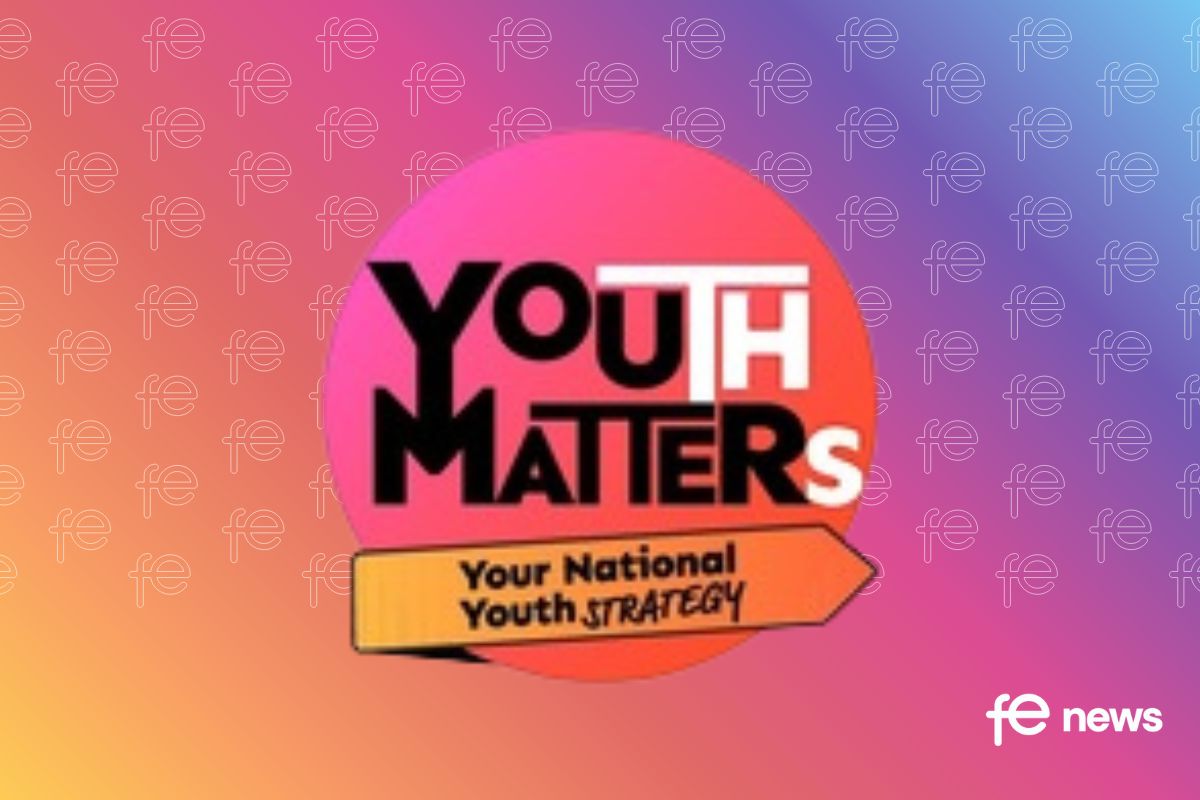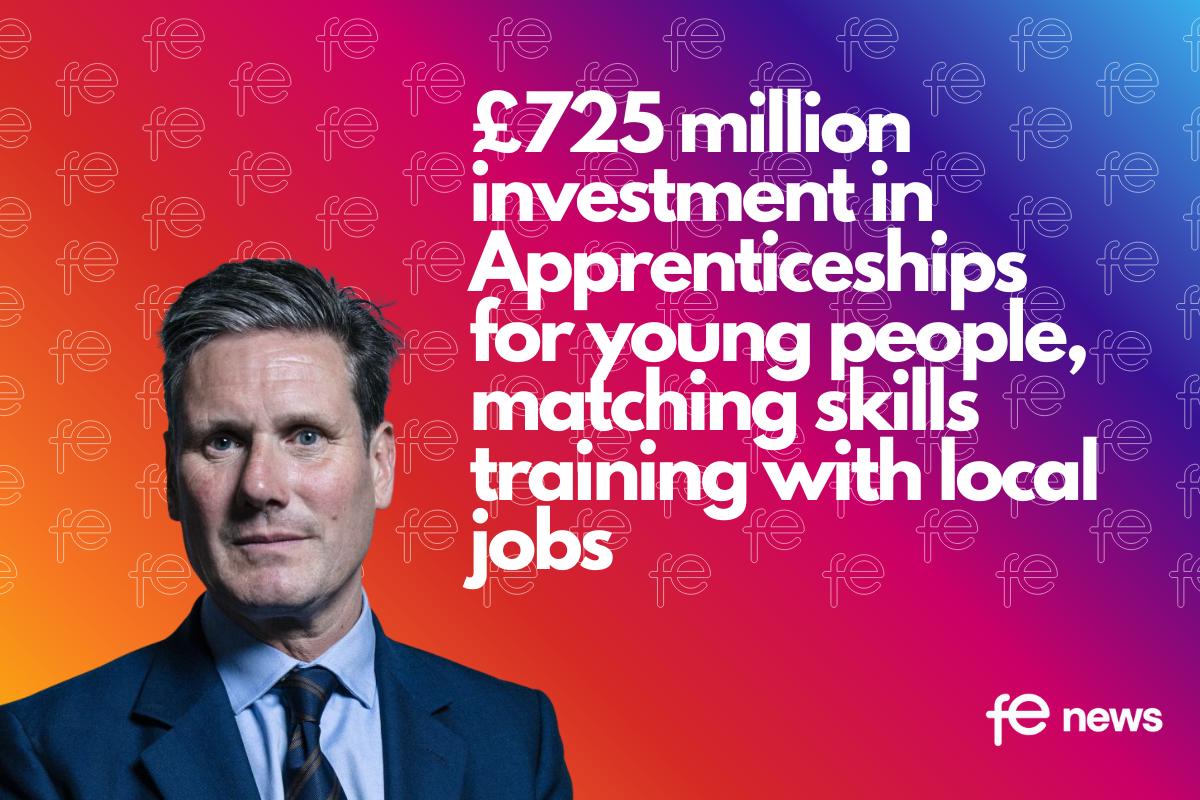University of the Arts London to launch 30 Online Courses for Students Worldwide

Today (24 Jun) at the @HEPI_news Annual Conference 2021, James Purnell gave his first public speech since becoming President & Vice-Chancellor of University of the Arts London (@UAL).
James spoke about the need for the HE sector to change and that the pandemic has shown technology is going to transform tertiary education.
He announced that from autumn 2021, UAL will open its six famous colleges to students at any life stage anywhere in the world, with a set of 30 online and low-residency degrees. The initiative allows students who currently can’t undertake residential courses to gain a world-class creative education.
The 30 undergraduate and postgraduate courses will be open for application later this summer and will begin in 2021/22 and 2022/23. By 2022-23, 20% of UAL’s Masters offer will be delivered online.
A further 14 standalone course units will start from January 2022. The courses will be taught by established academics at UAL’s colleges – Camberwell College of Arts, Central Saint Martins, Chelsea College of Arts, London College of Communication, London College of Fashion and Wimbledon Colleges of Arts.
Of this new digital initiative, James said:
“UAL aims to set a benchmark for online creative education, re-shaping art, design, fashion, technology, performance and media as the global creative economy migrates increasingly online.
“We all know technology is going to transform tertiary education – the pandemic has shown that. But no one knows exactly how. This initiative allows us to imagine and prototype the future, opening our famous colleges to aspiring creatives of any age, wherever they are.
“Our residential courses in London will continue to be central to UAL. But they don’t suit everyone – our new courses will allow us to serve a wider range of student, from different backgrounds, at different life stages, including people already in work.
“Through this substantial online offer, we will establish a truly global teaching community to meet the huge demand for further and higher education as economies across the world are rebuilt.
“This will deliver a more inclusive university, for more learners, and strengthen UAL as a world-leading institution.”
The courses will be tailored to aspiring creatives at all stages of their creative and professional journeys. A range of intensive 12-week courses will give learners the chance to curate their own learning journey in emerging, business-critical fields such as Artificial Intelligence, Virtual Reality and Computer Animation. These packages can be taken separately or can be combined, allowing students to customise their own degrees. UAL will also offer step-on step-off executive programmes for creative leaders across the spectrum of fashion business with courses in subjects such as Business Strategy, Fashion Psychology, Product Management and Circular fashion.
James Purnell’s Afternoon Keynote Address at the HEPI Annual Conference 2021
Thank you for inviting me today. It’s a privilege to be with you, at least in spirit, if not in person.
And as the child and grandson of teachers it’s an honour to speak with you, especially now. This is the single most important moment for education policy since the Second World War.
We meet today during what Jonathan Grant calls an ‘in-between time’. It’s a moment of change, an interregnum, an inflection point.
What higher education chooses to do now will echo through generations. The past sixteen months have been long and difficult for the sector.
But they have also revealed what we already knew to be true:
That higher education serves an immense social purpose. And that universities are public services that work best when they serve society.
Our true social purpose
For the past sixteen months, we have shown how we can serve society.
Universities were not only important, but indispensable to fighting Covid.
Without universities, many thousands, if not millions, wouldn’t be with us today. And thousands more lives, communities, businesses would be devastated.
Researchers at our universities modelled the impact of Covid. They invented tests and, of course, delivered the vaccines.
Not only this: they played an integral role as activists in our communities. They fought inequalities, volunteered, supported students.
At UAL, for example, we helped people with dementia learn about the virus. We worked with refugees in the Za-atari refugee camp to make PPE with local materials.
For everyone in the sector, this dedication and compassion came as no surprise. Our universities have always played a role in transforming society for the better.
From vocational colleges in the 19th century which gave people skills in growing industries, to the 50% target that gave millions of young people a better start in life, social purpose has always been the higher purpose of higher education.
None of these transformations, however, took place in a vacuum. Governments legislated and the sector innovated.
I’ve always believed universities work best in a competitive environment:
- One in which they aren’t micro-managed or subjected to top-down interference.
- One in which they prioritise serving their students rather than mandates from Westminster.
As we emerge from the pandemic, we have an opportunity to grow again. To build on the momentum, to move fast, and to be more nimble. We have an opportunity to serve society in an entirely new way.
This ‘in-between time’ is, in fact, our time. We have the chance to open up access to more students, here and abroad. To prepare them to get the job they want or start the business they dream of building. And to work with others to tackle major social issues like racism and climate justice.
A new social purpose
Together then, we can create a new social purpose for our universities. That’s the theme of Jonathan Grant’s new book: The New Power University.
Quoting the philosopher John Ralston Saul he argues this ‘in-between time’ is a chance for universities to change for the better. Not focused on being businesses, but on being institutions with a social purpose.
Inside and outside our universities, this is already proving to be the case. The ‘new power’ of transparent, participatory online networks, is challenging the ‘old power’ of centralisation, hierarchy and bureaucracy.
We’ve seen it in the way the internet has democratised knowledge. And in the way Black Lives Matter and #metoo galvanised millions. Higher education, Grant argues, shouldn’t let this opportunity pass it by.
So, how do we take this opportunity?
I think there are two ways:
1. The first is digital.
The sector has been talking about digital disruption for years.
It’s now eight years since Michael Barber described tech disruption as an ‘avalanche’. Big tech, he argued, was coming for higher education.
But Covid has proved we shouldn’t fear technology. Less an avalanche, tech is a tool we can turn to our advantage.
If the future is about tech, then it’s a future we’ve already lived through. When Covid struck, every university in the land had to adapt. Millions of students spent the last sixteen months learning online.
Both lecturers and students had to learn entirely new skills. There were huge challenges, but the sector adapted brilliantly. We proved we could move fast.
Together, we went through years of digital change in months. As the world reopens, no-one wants to return to that confined, closed-off world. But the experience allows us to imagine how we can do things differently.
2. Our second opportunity is about physical space.
The pandemic, I think, has changed our cities forever. Amsterdam, for instance, has already embraced doughnut economics. And Paris is experimenting with the so-called ‘fifteen minute city’ concept.
London Mayor Sadiq Khan has talked up the idea of ‘good growth’. And universities, so often rooted in our cities, will need to change with them.
In central London, where UAL is rooted, many offices will never return. There will be more commercial space available than in living memory. Cities and towns will look for new ways to thrive. Universities can play a role in filling that space, In bringing life back to the centre, And helping our towns and cities recover from lockdown.
So many courses at UAL, for instance, are oversubscribed. After Covid, we’ll have the chance to offer more physical places to students than ever before. And to build on our record as the third best university in the UK for local impact.
This then is a way that universities across the UK can fulfil their social purpose. By doing more online and doing more in bricks and mortar colleges. And by blending both the physical and the digital worlds together.
Levelling up
Doing so will allow us to expand access to higher education like never before. This Government says it is committed to ‘levelling up’ the UK. But we need to say: levelling up isn’t only about moving institutions out of London. It’s also about opening up London institutions to the whole country.
Higher education in this country is truly world class.
- We’re second in the world for R&D output, despite being twelfth for inputs.
- We’re at the top of the global league tables, with four universities in the top twenty.
- In creative education, we are the top, with the RCA and UAL ranked first and second.
- The sector generates £95 billion in gross output and creates almost a million jobs.
- And higher education is responsible for about a third of labour market productivity growth, according to David Willets.
HE is our greatest asset, but so much time is spent trashing it.
We talk about higher and further education as if they are competitors. But that’s not the reality of institutions like UAL.
Through our FE courses, we educate 1,500 students a year. Through the UAL Awarding Body, we award 56,000 further education qualifications every year. I can’t think of a UAL course that isn’t vocational, nor of an FE course that doesn’t depend on academic skills.
Far from setting FE against HE, we should be growing them together. Both will need to expand if we want to build a stronger, more sustainable economy.
We have a chance, for instance, to get more young people into university. A coming demographic boom will mean a bigger demand for HE than ever. 300,000 more places will be needed by 2030, according to HEPI. We’ll need more places on traditional three-year degrees.
But blended and online learning will also help us meet that demand. And to reach those who can’t or don’t want to move to study.
It will also help extend the opportunity of education far beyond these shores. By 2050 the population of Africa will double to 2.5 billion.
The average age of the population there is just 19 today and will fall further. Imagine what we could do for the life chances of so many millions.
And imagine what we could learn from them: A new cross-pollination of ideas, methods and perspectives.
And higher education can also play a part in levelling up skills and wages in the UK. Automation and new technologies like AI are transforming the world of work. The Fourth Industrial Revolution will both destroy and create jobs.
The World Economic Forum has called for a global reskilling revolution. More than 1 billion people, it reckons, will need to reskill by 2030.
McKinsey, meanwhile, reckon 90% of UK workers will need to retrain by 2030. Students who leave university this year will learn for the rest of their lives.
Low residency and online learning will allow them to balance commitments. To continue to study while working full-time and supporting their families.
Opportunity shackled
This should be the moment we unleash higher education’s full potential. But too many want to shackle it.
For thirty years, higher education has been heading in the right direction. But we risk returning to a world of dashed hopes. Where there was a cap on the number of students who could go to university. Or where investment per student was falling, diminishing quality.
The Dearing Report in 1997 called for the creation of a learning society. One in which higher education would need to expand if Britain was to compete. I co-authored the paper that suggested the 50% target. I make no apology for it. It expanded access to millions and helped the sector grow.
And it was the Conservatives, in power from 2010, that completed Labour’s commitment: That anyone who wanted to go to university should be able to go to university. This was a huge public policy achievement.
But now, in this ‘in-between time’, we are in danger of going back in time. Cutting the fee cap to £7,500 would be devastating. It would mean fewer places for home students. And a cut in resources for those who did get a place. It would mean cutting off the aspirations of millions. The hopes and dreams of those born today and those still to be born.
In 2010, the Institute of Education found 97% of new mothers want their children to go to university. And with those 300,000 new places needed by 2030, we risk creating a ticking time bomb. Where the sector has to turn down thousands of promising young people. And one in which old inequalities, long since banished, return.
In public policy terms, it’s hard to think of a bigger disaster than that.
The Skills Bill started in the Lords last week. The Lifelong Loan Entitlement is a huge breakthrough. But I hope funding it won’t lead us down a cul-de-sac of cuts and caps.
Instead we need to support the growth of universities. We need to offer places to both home and international students who are excluded. We need to generate revenue to reinvest in research, access and social purpose. And we need to learn from the experience of the past thirty years.
Higher education needs to change. We must recognise that fact. But rather than putting a cap on numbers, we need to reform the system. Rather than retreat into the past, we need to move forward and move fast.
We need to build on the momentum the pandemic has given us. And we need to give the sector incentives to innovate and let it do what it does best.
Our proposal
We need to seize the opportunity to widen access more than ever before. The pandemic has shown that technology is going to transform tertiary education.
At UAL we are imagining and prototyping what that future will be. Our residential courses in London will continue to be central. But they don’t suit everyone.
Later this summer, we will announce over 30 new online courses to start in 2021/22 and 2022/23. To put that in perspective, it means 20% of our Masters offer will be delivered online. These courses will be taught by our amazing staff from our six world-famous colleges. They will include pre-degree, undergraduate, MA and other qualifications.
We will offer shorter courses, in particular for professionals. For example, we’ll offer 12-week courses in Artificial Intelligence and Computer Animation. Or step-on, step-off executive programmes for fashion business leaders. Some will be fully online, others will include a residential element.
These courses will allow us to serve more students than ever, from different backgrounds, at different life stages, all over the world.
We are prototyping how a bricks and mortar university can also be a digital one. We will learn how digital learning can work best for our students. How to support our staff through these new challenges. And how to design a university that is both digital and physical.
Our goal is to be a university defined by how many students we include, not how many we exclude. This approach will widen access to UAL, hugely expanding the size of our student body, and diversifying who can get a UAL education.
This will, I believe, fulfil the original mission of our colleges. To be a university that works best when it serves society. Not only in helping to bring beauty into people’s lives. But in contributing to new fields of industries like AI and immersive technology. And working with the sector to ensure this technological opportunity serves our social purpose.
Together then, let’s make 2021 the year HE demonstrates its higher purpose.
The year we showed we could level up by opening up. Across society, we’ll look back on this next year as a moment of profound change.
- A moment when we took the opportunity to confront our greatest challenges.
- A moment when the wall between the physical and the digital began to crumble.
- And a moment when our enormous social and technological potential was unleashed.
Tertiary education must play an integral role in this transformation. What began as a matter of survival has now turned into our opportunity.
In the next year we need to break through the wall separating us from the future. Let’s meet on the other side and work together to build something new.
By doing so we’ll fulfil the ultimate social purpose of universities: To educate, to expand the realms of human knowledge, and to create a better world.
James Purnell, President & Vice-Chancellor of University of the Arts London











Responses